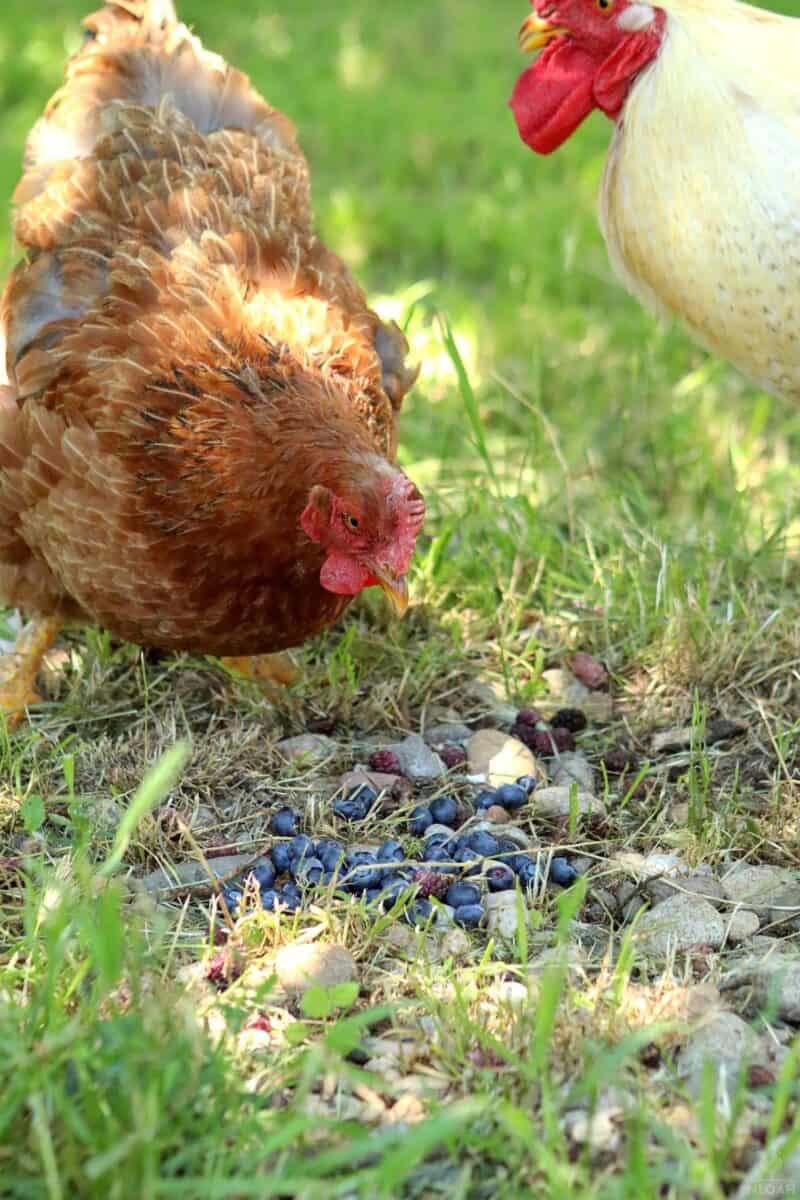If you’re looking for ways to improve the nutrition of your chicken husbandry, incorporating blueberries into your operation may be the perfect solution. Blueberries are a nutrient-rich fruit that can provide your chickens with essential vitamins and minerals, while also enhancing the flavor of their eggs and meat. This article will explain how to incorporate blueberries into your chicken husbandry for improved nutrition, so that your chickens can benefit from the health benefits of this delicious fruit.
Are Blueberries Safe for Chickens?

Blueberries are a great source of nutrition for chickens. This small berry is packed full of vitamins, minerals, and antioxidants that can help keep your chickens healthy. Blueberries are a good source of dietary fiber, which is important for digestion. They are also high in vitamin C, which is important for maintaining good health. In addition, blueberries contain a variety of other vitamins, minerals, and antioxidants that can help improve egg production, protect against diseases, and increase the overall health of your flock.
Blueberries are safe for chickens to eat, as long as they are given in moderation. Too many blueberries can cause digestive issues in chickens, so it is important to limit the amount of blueberries your flock consumes. It is a good idea to start off slowly by offering a handful of blueberries a few times a week, and then increase the amount as your chickens get used to them. You can also mix blueberries with other fruits and vegetables to create a nutritious treat for your chickens.
Blueberries are also beneficial for chickens in terms of nutrition. The vitamins, minerals, and antioxidants found in blueberries can help to support the health of your flock. Blueberries can help to improve egg production, protect against diseases, and provide a better overall nutrition to your chickens.
Overall, blueberries are a great addition to any chicken’s diet. They are safe for chickens to eat and offer a variety of nutritional benefits. If you’re looking for a nutritious treat for your chickens, blueberries are a great choice.
Benefits of Incorporating Blueberries in Chicken Husbandry
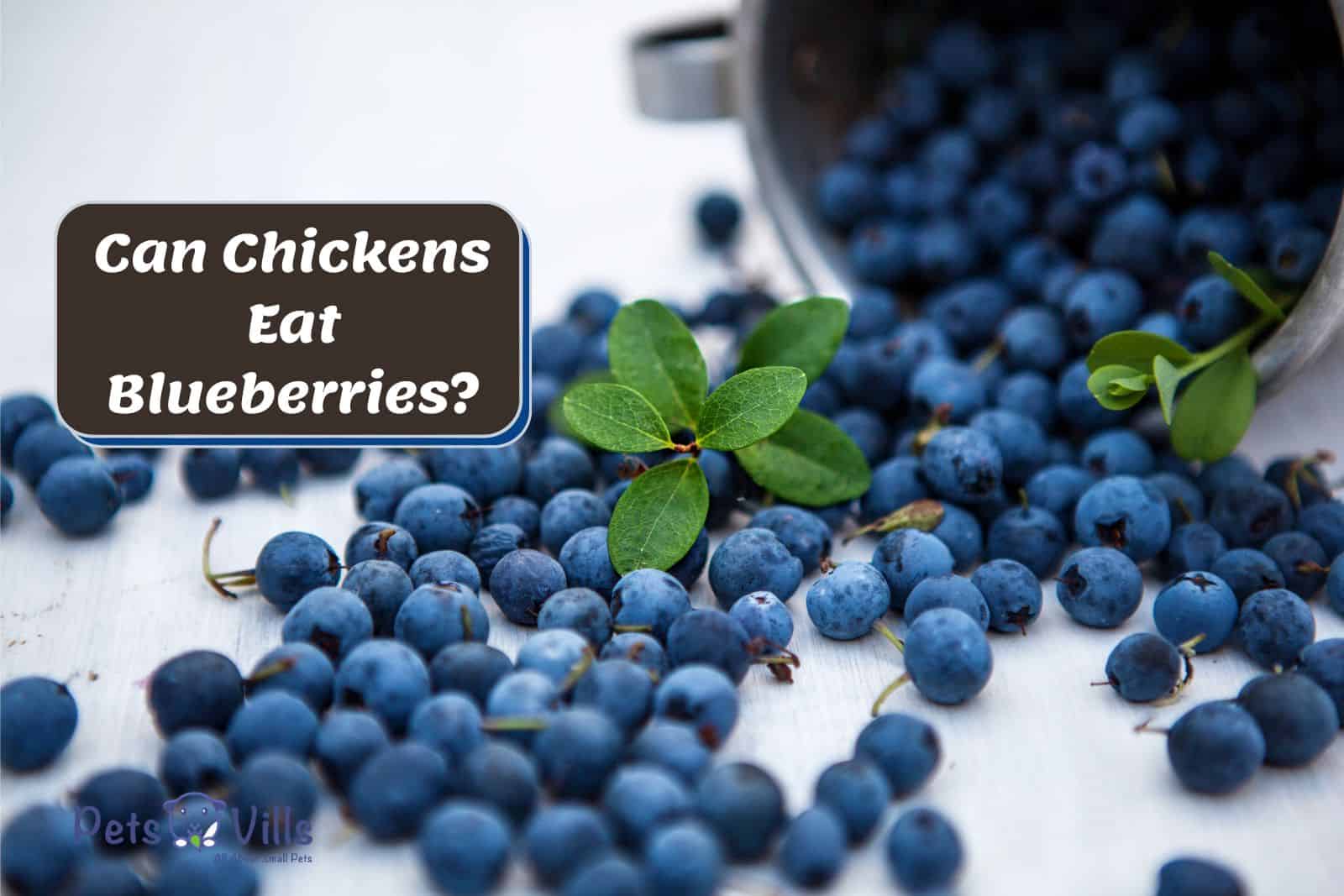
Blueberries are a nutritious and delicious treat for chickens that can provide multiple benefits to your chicken husbandry. Here are some of the benefits of incorporating blueberries into your chicken’s diet:
- They are packed with vitamins and minerals such as vitamin C, potassium, magnesium, calcium, and phosphorus, which can help to boost your chickens’ immune system.
- The antioxidants in blueberries can help to protect your chickens from disease and infection.
- They can help improve your chickens’ overall health and well-being.
- Blueberries are high in fiber, which can help to keep your chickens’ digestive system healthy.
- The natural sweetness of blueberries can make them a tasty treat for your chickens.
- Blueberries can be fed to chickens whole, so there is no need to worry about whether can chickens eat blueberries whole.
Incorporating blueberries into your chicken’s diet can provide numerous benefits and can help to keep your chickens healthy and happy.
How to Feed Blueberries to Chickens
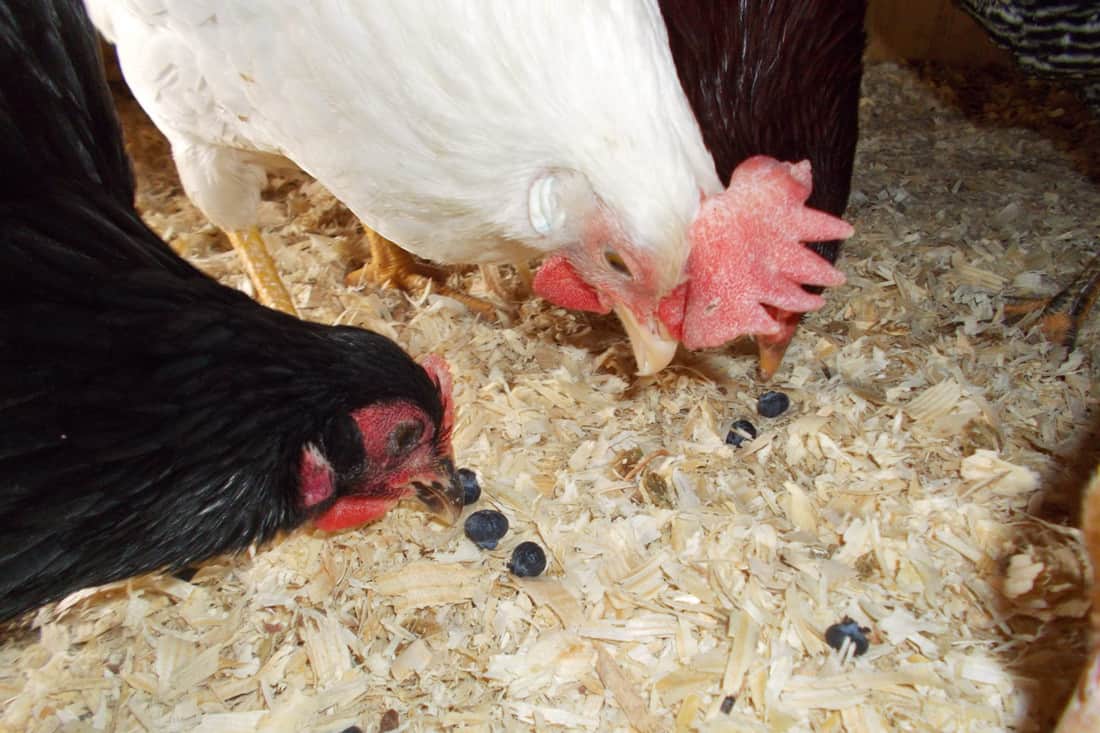
Whole Blueberries
Chickens can benefit from the addition of blueberries to their diet. Whole blueberries can be fed to chickens as treats or as part of their regular diet. When feeding blueberries to chickens, make sure they are washed and free of any pesticides or chemicals. Feeding chickens blueberries can provide them with vitamins, minerals, and antioxidants.
Blueberry Powder
Another way to incorporate blueberries into a chicken’s diet is to add blueberry powder. Blueberry powder is made from dried and ground blueberries, and can be added to a chicken’s feed. The powder is a concentrated source of vitamins, minerals, and antioxidants.
Blueberry Juice
Blueberry juice can also be fed to chickens. It can be used as a treat or added to their water as a nutritional supplement. Blueberry juice is a good source of vitamins, minerals, and antioxidants.
Blueberry Leaves
In addition to the fruit, blueberry leaves can be used to feed chickens. Blueberry leaves are a good source of fiber, minerals, and antioxidants. The leaves can be fed to chickens fresh or dried.
Incorporating blueberries into a chicken’s diet can provide them with essential vitamins, minerals, and antioxidants. Blueberries are a safe and nutritious treat for chickens, and can be fed in whole form, powder, juice, or as leaves.
Nutritional Value of Blueberries for Chickens
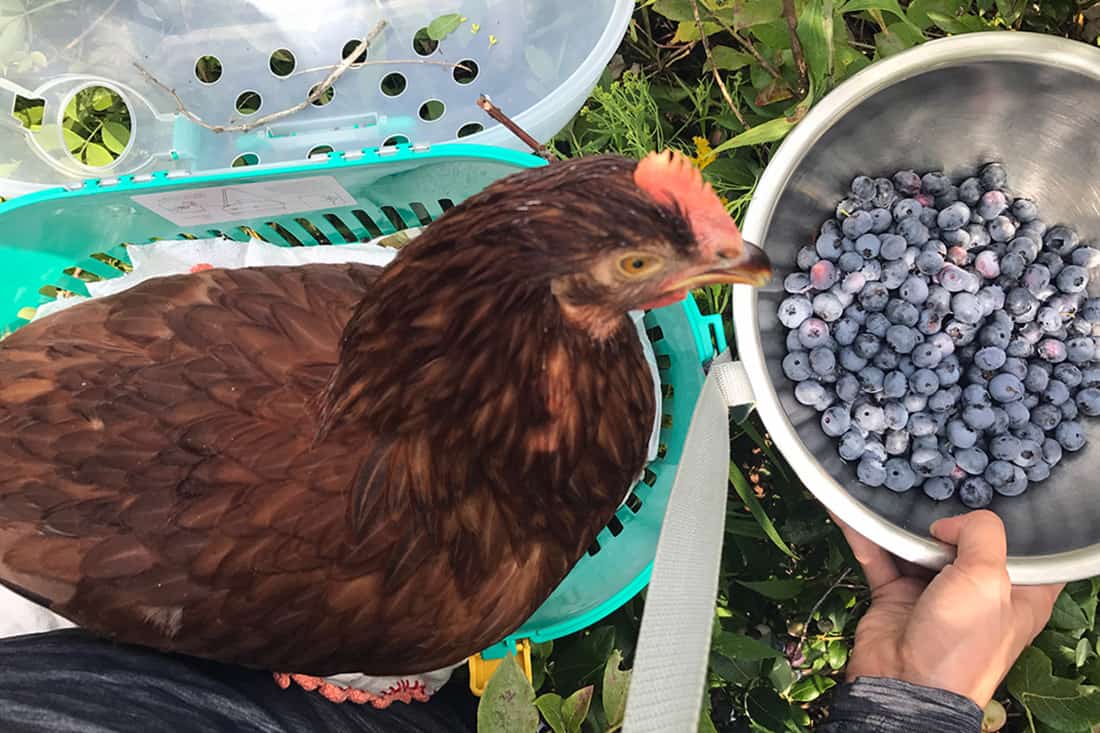
Blueberries are a highly nutritious food that can offer a range of health benefits when fed to chickens. They are an excellent source of antioxidants, vitamins, minerals, and dietary fibers. Blueberries can also help to improve the immune system of chickens, as they contain high levels of vitamin C. Blueberries are also known to improve the overall health of the digestive system, as they contain high levels of dietary fiber which helps to improve digestion and reduce the risk of certain diseases. Furthermore, blueberries are an excellent source of energy, as they contain high levels of carbohydrates, proteins, and fats.
The answer to the question, “Can you feed chickens Blueberries?”, is a resounding yes. As mentioned above, Blueberries provide a range of health benefits for chickens, as well as being a delicious treat. When feeding chickens Blueberries, it is important to ensure that they are only given in moderation. Blueberries should only be given as an occasional treat, as they are high in sugar, and can lead to health issues if consumed in large quantities.
Side Effects of Feeding Blueberries to Chickens
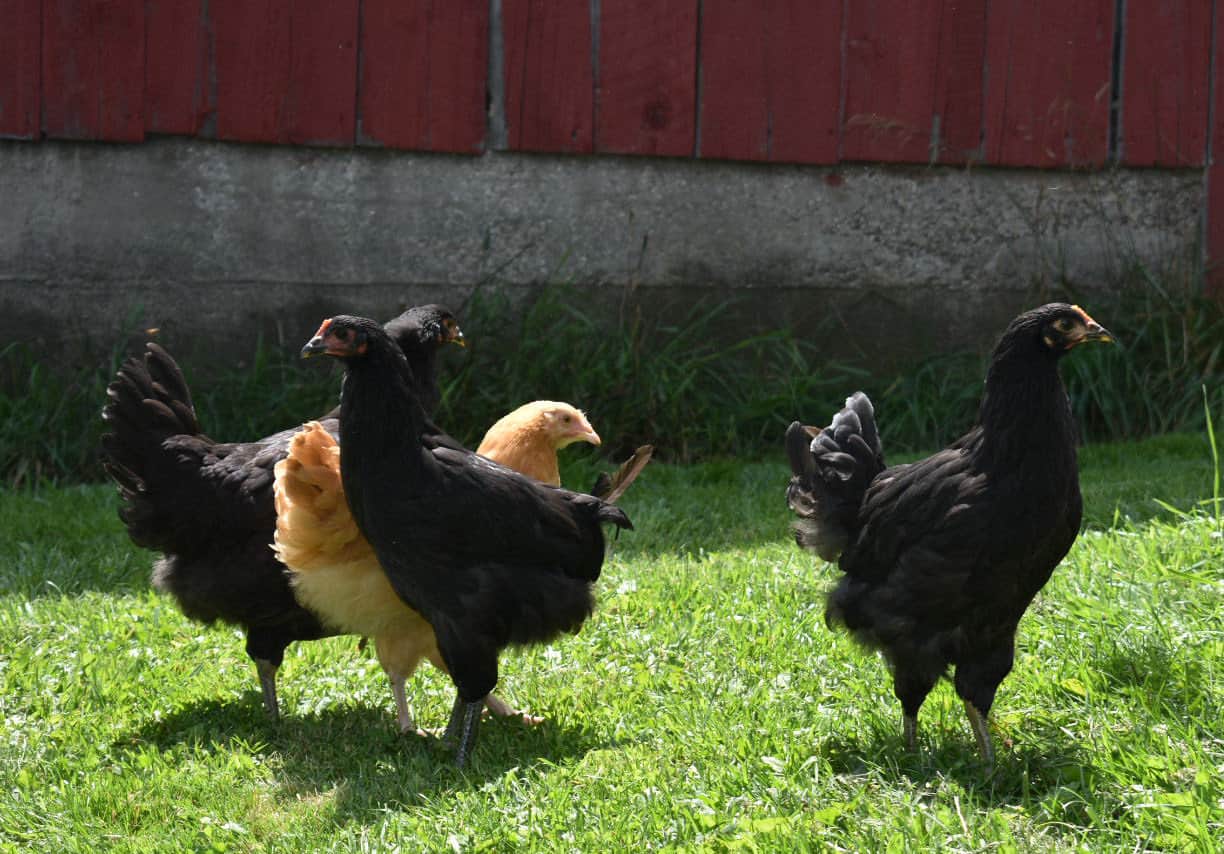
Blueberries can make a great addition to a chicken’s diet. However, excessive amounts of blueberries can cause digestive issues for chickens, such as diarrhea and vomiting. Blueberries can also be toxic to chickens, so it is important to be aware of the potential side effects before feeding blueberries to your chickens. In addition, blueberries can contain high levels of sugar, which can lead to health issues such as weight gain and diabetes. Therefore, it is important to limit the amount of blueberries in your chickens’ diets and to only feed them in moderation. If you are unsure as to can chickens have blueberries, it is best to consult a veterinarian before feeding them to your chickens.
Can Baby Chicks Eat Blueberries?
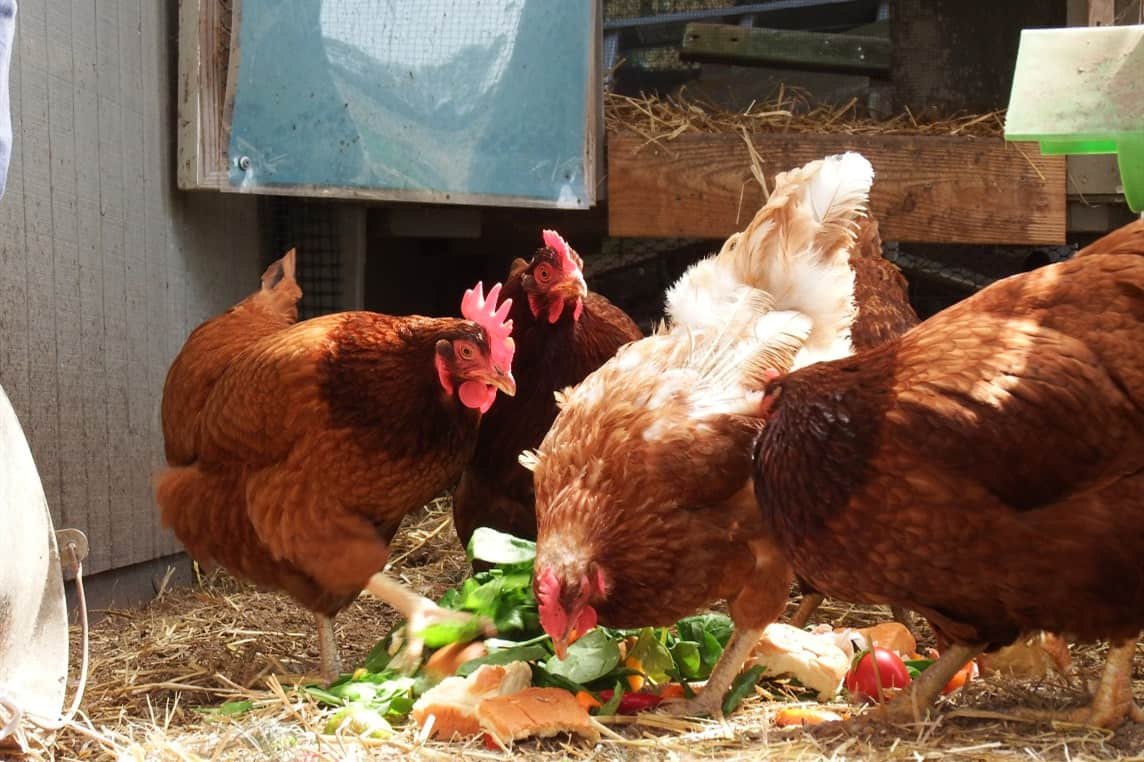
Baby chicks can eat blueberries, although they should be given in moderation. Blueberries are high in antioxidants, which are beneficial to young chickens’ health and development. They are also a source of Vitamin C and other nutrients, which helps to support the growth and maintenance of bones, feathers, and other tissue. However, due to their high sugar content, they should only be given as an occasional treat or as part of a varied diet.
To incorporate blueberries into your chicken husbandry, you can either give them whole or add them to their feed. If giving them to chicks, it is important to ensure that the blueberries are crushed or cut into small pieces to prevent them from choking on them.
Blueberries can also be added to other foods, such as mash, to give young chickens a nutritional boost. This can be especially beneficial for breeds that are prone to weak bones and feathers, such as Silkies or Wyandottes.
Blueberries can also be used to make a refreshing and healthy treat for chickens of all ages. Puree the berries and add them to water for a sweet and nutritious drink, or freeze the puree into cubes for a cool snack on hot days.
By adding blueberries to your chickens’ diet, you can help to ensure they receive all of the vitamins and minerals they need to stay healthy. As always, it is important to provide a balanced and varied diet to ensure your chickens receive all of the nutrients they need.
How Much Blueberries Should You Feed the Chickens?
Blueberries can be a great addition to a chicken’s diet, providing a variety of essential vitamins and minerals. But how much should you feed? Here’s what you need to know:
- Will chickens eat blueberries? Yes! Chickens are omnivores, meaning they can eat a variety of foods, including blueberries.
- How much should you feed? Chickens should not consume more than 10% of their daily diet in blueberries. This means that if your chickens are eating a 2-pound diet per day, they should not eat more than 2 ounces of blueberries.
- Are there any risks? Yes. Overfeeding can lead to digestive issues, so it’s important to monitor the amount of blueberries you are feeding your chickens.
Blueberries can be a great source of nutrition for chickens, but it’s important to do so in moderation. Use the guidelines above to ensure your chickens are getting the proper amount of blueberries in their diet.
Frequently Asked Questions
What Kind of Blueberries Should I Use for My Chickens?
- Fresh: Fresh blueberries are the best choice for your chickens. They are full of antioxidants, vitamins, minerals, and other nutrients that can help improve your chickens’ health and nutrition. Look for organic, pesticide-free blueberries that are free from mold or other contaminants.
- Frozen: Frozen blueberries are a good option as well. They are not as nutrient-dense as fresh blueberries, but they are still a great way to add nutrition to your chickens’ diet. Make sure to thaw them out before feeding them to your chickens.
- Canned: While canned blueberries are convenient, they are not the best choice for your chickens. Canned blueberries are often packed in sugary syrup, which can be unhealthy for your chickens. Look for unsweetened, organic canned blueberries instead.
How Much Blueberry Should I Feed My Chickens?
Blueberries can be a nutritious addition to a chicken’s diet, however, they should not be the primary source of nutrition. A good rule of thumb is to provide no more than 10% of a chicken’s daily intake in blueberries. The rest of the diet should be composed of a balanced feed, such as a commercial poultry feed, supplemented with fresh vegetables, fruits, and other treats. For adult chickens, only a few blueberries per day per bird is necessary, while younger chicks may benefit from a larger portion. As with any treats, moderation is key.
How long will it take for my chickens to begin showing signs of improved nutrition?
Generally speaking, chickens will begin to show signs of improved nutrition within a few days after incorporating blueberries in their diet. However, the effects may vary from chicken to chicken.
- Day 1: Chickens typically become more active and start foraging for blueberries.
- Day 3-5: Chickens will begin to show signs of improved energy levels and overall health.
- Day 7-14: Chickens will begin to show signs of improved feather growth, color, and texture.
- Day 14-21: Chickens will begin to lay more eggs and have improved eggshell quality.
- Day 21-30: Chickens will show continued improvement in overall health and nutrition.
It is important to note that the effects of blueberries in your chickens’ diet may not be noticeable immediately, but with continued use, your chickens will reap the benefits of improved nutrition.
Are there any potential health risks associated with incorporating blueberries into my chicken’s diet?
Yes, there are some potential health risks associated with incorporating blueberries into a chicken’s diet.
- Blueberries contain a compound known as amygdalin that can be toxic to chickens in large amounts.
- Blueberries contain a high amount of sugar, which can lead to digestive upset in chickens in large amounts.
- The seeds in blueberries can cause a blockage in the digestive tract of chickens if consumed in large amounts.
- Blueberries are acidic, which can cause stomach upset in chickens if consumed in large amounts.
Therefore, it is important to feed blueberries to your chickens in moderation and to always consult a veterinarian if you have any concerns about your chickens’ health.
What Other Fruits or Vegetables Can Be Added to My Chicken’s Diet to Further Improve Nutrition?
Fruits:
- Apples
- Bananas
- Grapes
- Cherries
- Cantaloupe
- Pineapple
- Mango
- Orange
Vegetables:
- Carrots
- Cucumbers
- Cauliflower
- Kale
- Spinach
- Broccoli
- Cabbage
- Peas
Conclusion
Incorporating blueberries into your chicken husbandry is a great way to provide better health benefits for your birds. Blueberries are packed with antioxidants and vitamins, and they can help to promote better digestion and provide a healthier diet for chickens. Feeding blueberries to your chickens is easy, and the results are worth the effort.
References
- USDA Agricultural Research Service, “Blueberry Forages and By-Products in Poultry Diets”
- National Center for Biotechnology Information, “Antioxidant and Anti-inflammatory Activities of Blueberry Anthocyanins and Their Role in Cardiometabolic Health”
- Oxford Academic, “Dietary Supplementation of Blueberry Polyphenols and Their Potential Benefits on the Management of Inflammation and Oxidative Stress: A Review”
